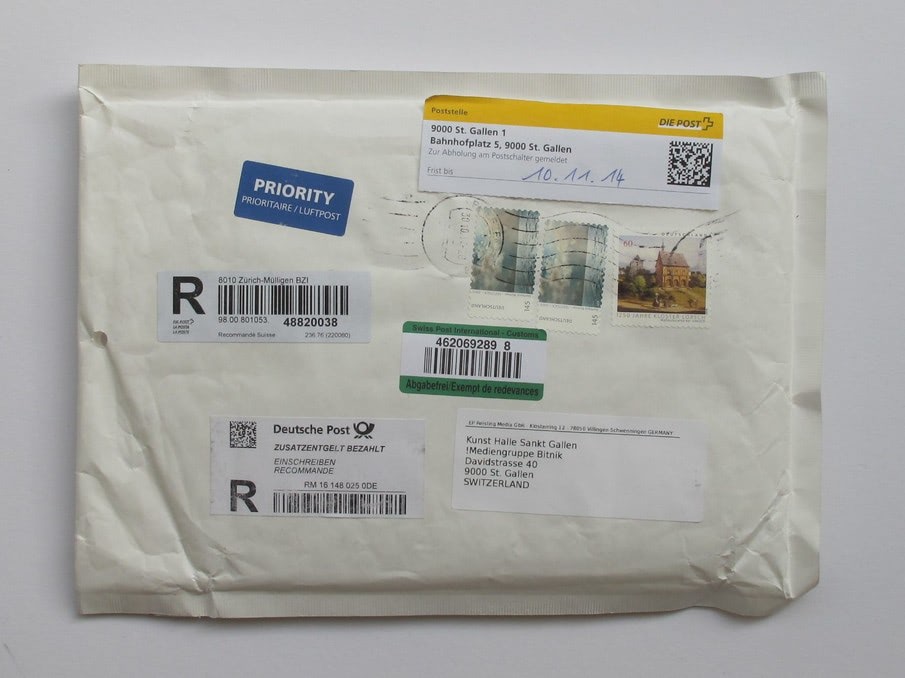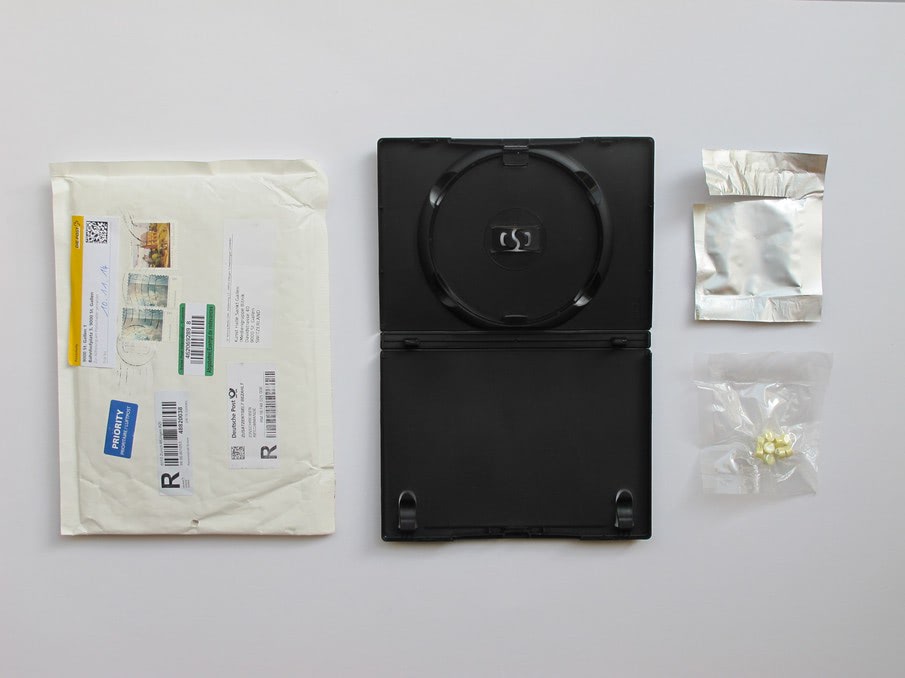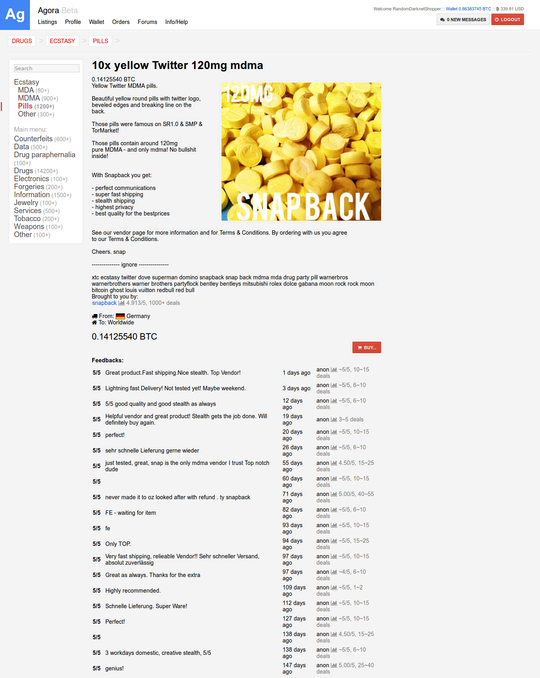The Random Darknet Shopper was an algorithm shopping on the Dark Web. Provided with a budget of $100 in Bitcoins per week, it selected one random item from deep web shop Agora and had it shipped to Switzerland to its makers, !Mediengruppe Bitnik. From counterfeit jeans and hidden camera baseball caps, to a passport scan and a Visa platinum card, everything was collected and put together in an exhibition that took place at the end of 2014. But there was one problem: on one of its shopping sprees the robot ordered a bag of Ecstasy pills.
"Today, we received the 10 Ecstasy Pills which the Random Darknet Shopper bought last week. The pills were vacuum-sealed in aluminium foil and placed inside a DVD case, so they would look like a DVD in a x-ray scan" the artists wrote.
The package with drugs was added along with 11 other purchases to the exhibition Dark Net - From Memes to Onionland, which opened on October 18th, 2014 and ran successfully for three months at Kunst Halle St. Gallen. But on the 12th of January, the day after the exhibition was closed, the work was confiscated by the public prosecutor's office of St. Gallen and all the purchases and the bot itself were taken away. The reason was said to be to prevent the pills from ending up in the hands of a third party.
The event brought some complicated issues to light concerning liability in the case of bots. Can a piece of software be jailed for a crime, or should the makers be held responsible? We might think immediately about the person who programmed the bot to do it, but what will happen when artificial intelligence becomes increasingly functional?
In the case of the Random Darknet Shopper the objects and the bot were released after three months, but the Ecstasy pills were destroyed. The artists were declared free of charge from illegal drug possession, since the effects of the questions raised by the artwork justified the drugs being exhibited as artefacts.
“We are the legal owner of the drugs – we are responsible for everything the bot does, as we executed the code", Domagoj Smoljo - one of the makers - told to The Guardian. “But our lawyer and the Swiss constitution says art in the public interest is allowed to be free”.
The aim of the project was to explore ethical implications of this kind of markets. Apart from that, trust was another topic the project aimed to explore. It is curious how trust exists between two anonymous parties around a commercial transaction of goods that are possibly illegal. According to Smoljo, the markets used similar procedures such as Ebay and Amazon's ratings and feedback systems. All the twelve items ordered arrived and for one cancelled trade the paid Bitcoins were returned.
According to the makers, the project has opened up just the tip of the iceberg about some important topics, such as the discussion about liability issues concerning software and robots.
“The arts should be able to mirror something that is happening in contemporary society in a contemporary way. We really want to provide new spaces to think about the goods traded on these markets. Why are they traded? How do we as a society deal with these spaces? At the moment there is just a lot of pressure, but not a lot of thinking about stuff, just immediate reaction” Weisskopf, member of !Mediengruppe Bitnik, said.
In the meantime, some of the dark markets which are mostly being used for drug trading have been shut down, while others continue to exist and even flourish.
Via: The Guardian, BBC, !Mediengruppe Bitnik
Images: !Mediengruppe Bitnik



jvysnwejzd
Muchas gracias. ?Como puedo iniciar sesion?
Muchas gracias. ?Como puedo iniciar sesion?
Posted on